German Shepherd Care Guide: Tips for New Owners
German Shepherds are one of the most popular dog breeds in the world, and for good reason. They’re loyal, protective, whip-smart, and let’s be real—they look like superheroes in fur.
But here’s the catch: a German Shepherd is not your average “easy starter dog.” They need structure, training, and commitment, or they’ll turn into a furry tornado of chaos.
If you’ve just brought home a German Shepherd puppy (or are planning to), buckle up. Here’s everything you need to know to survive—and thrive—as a new Shepherd parent.
1. Exercise: Spoiler, Walks Around the Block Won’t Cut It
German Shepherds aren’t lapdogs. They were bred for work—herding, guarding, tracking—so they come with energy levels that would make a marathon runner jealous.

What they actually need:
🍲 50 Printable Dog Food Recipes Your Pup Will Love
Skip the fillers and preservatives. Make healthy, homemade meals your dog will actually eat — using everyday ingredients you already trust. Vet-friendly, budget-friendly, and super easy to follow. 🐾
Perfect for picky eaters, senior dogs, and pups with sensitive stomachs. Make mealtime simple and nutritious again.
Get the Recipes Now 🐶- At least 60–90 minutes of exercise daily
- A mix of walks, runs, and off-leash play in a safe area
- Activities that challenge their mind, not just their legs (more on that later)
If you don’t meet their exercise needs, they’ll meet them for you by digging craters in your yard or redecorating your living room with shredded pillows.
2. Training: Outsmarting the Smart Dog
German Shepherds are scary smart. That’s amazing when you’re teaching them new tricks, but a nightmare if you slack on training—they’ll figure out loopholes faster than a teenager sneaking out after curfew.
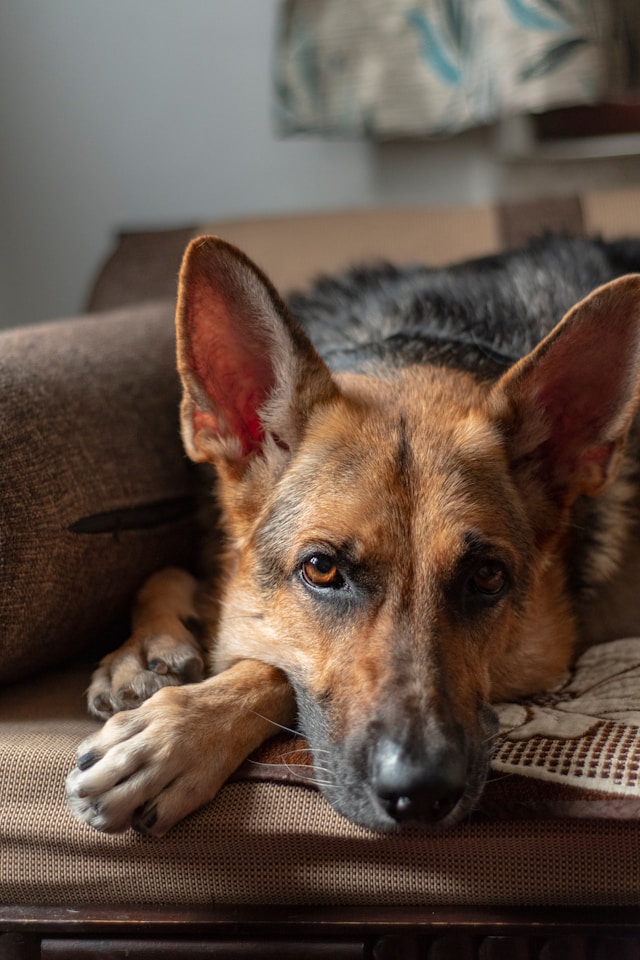
Training tips that actually stick:
- Start early with obedience basics (sit, stay, come, heel)
- Use positive reinforcement—praise, treats, toys
- Keep sessions short (10–15 minutes) to prevent boredom
- Stay consistent: if one person allows couch-surfing and another doesn’t, you’re doomed
Pro tip: don’t just teach commands—teach manners. A 90-pound Shepherd jumping on guests is not “cute enthusiasm.”
3. Socialization: Stop the Overprotective Tendencies Early
German Shepherds are naturally protective. That’s part of why people love them, but without socialization, that protective streak can turn into over-the-top reactivity.
What to do:
- Introduce them to people, kids, and other dogs from puppyhood
- Expose them to different environments (parks, busy streets, pet-friendly stores)
- Keep experiences positive with treats and praise
The goal is to teach your Shepherd the difference between “friend” and “threat.” Because left unchecked, they’ll assume everyone is suspicious—including your poor mailman.
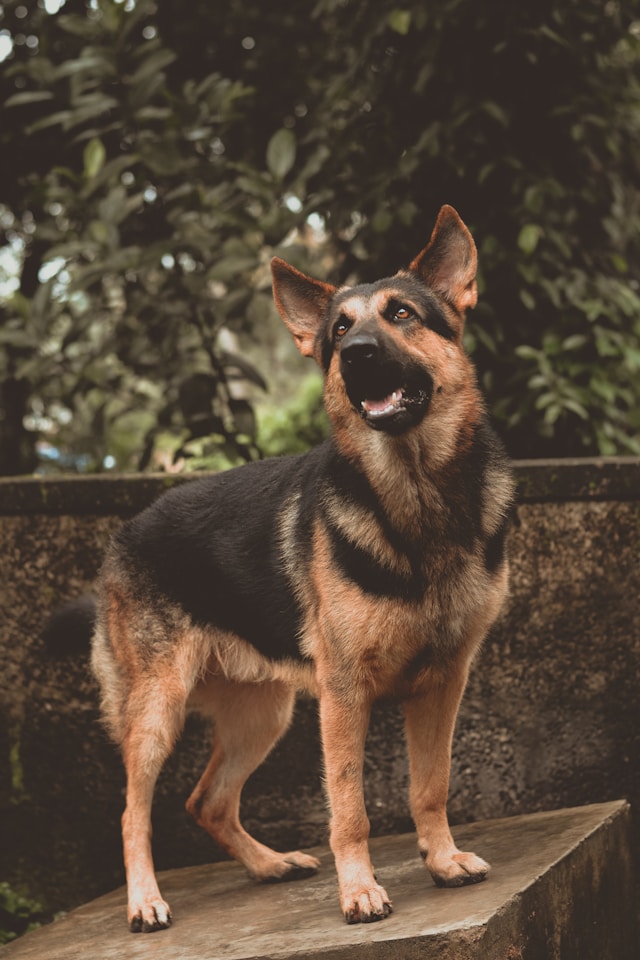
4. Diet: Fuel the Machine
These dogs are athletes, so feeding them matters. A cheap bag of kibble from the bargain bin won’t cut it.
Feeding guidelines:
- Choose a high-quality dog food with real protein as the first ingredient
- Puppies often need 3–4 meals a day; adults usually do fine with 2
- Watch portion sizes to avoid obesity—it’s rough on their joints
- Consider supplements (with vet guidance) for joint health
And yes, they’ll try to guilt-trip you for extra food with those big brown eyes. Stay strong.

5. Grooming: The Shed Happens Lifestyle
If you don’t like dog hair, I have bad news—German Shepherds shed. A lot. Like, “you’ll find hair in your coffee” levels of a lot.
Grooming survival kit:
- Brush them 2–3 times a week (daily during shedding season, aka spring and fall)
- Use a de-shedding tool for undercoat fur
- Bathe occasionally (not too often or you’ll dry out their skin)
- Trim nails every few weeks
- Check ears regularly for wax and infections
Embrace the fur. Buy a good vacuum. And maybe lint rollers in bulk.
6. Health: Common Issues to Watch For
German Shepherds are generally healthy but prone to a few breed-specific issues. Knowing what to look out for can save you a lot of heartache (and vet bills).
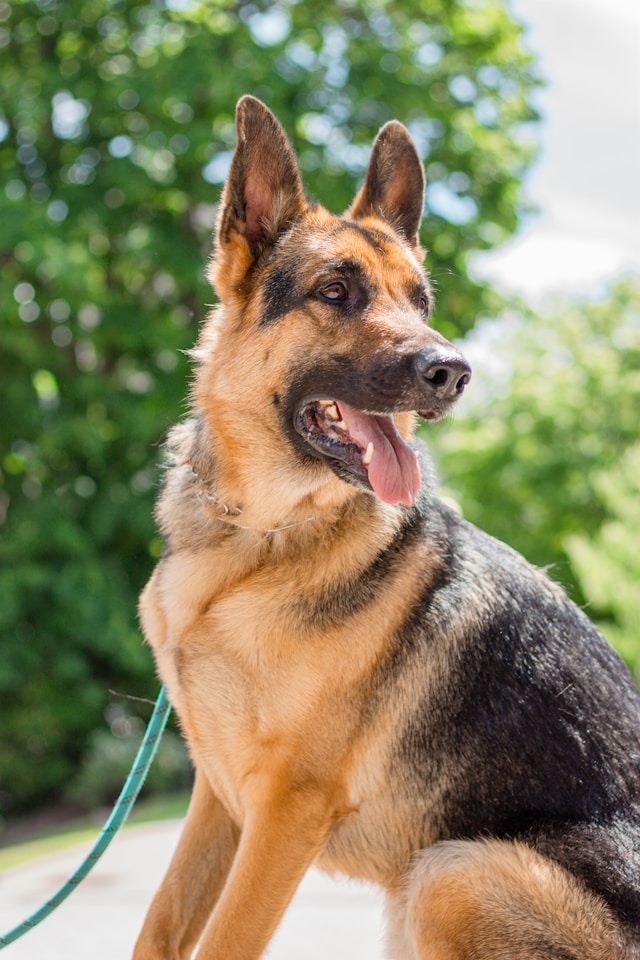
Top health concerns:
- Hip and elbow dysplasia: Keep them lean to reduce strain
- Degenerative myelopathy: A spinal disease common in older Shepherds
- Allergies and skin issues: Often triggered by food or environment
- Bloat (gastric torsion): A life-threatening emergency—feed smaller meals and avoid heavy exercise right after eating
Regular vet checkups are your best weapon. Don’t skip them.
7. Mental Stimulation: Tired Brain = Happy Dog
A bored German Shepherd is destructive, plain and simple. They’re working dogs, which means they need jobs.
Ways to keep their brain busy:
- Puzzle feeders and interactive toys
- Obedience training beyond the basics
- Agility courses, tracking games, or even scent work
- Teaching silly tricks (they love showing off)
Think of it this way: exercise works the body, training works the brain. They need both.
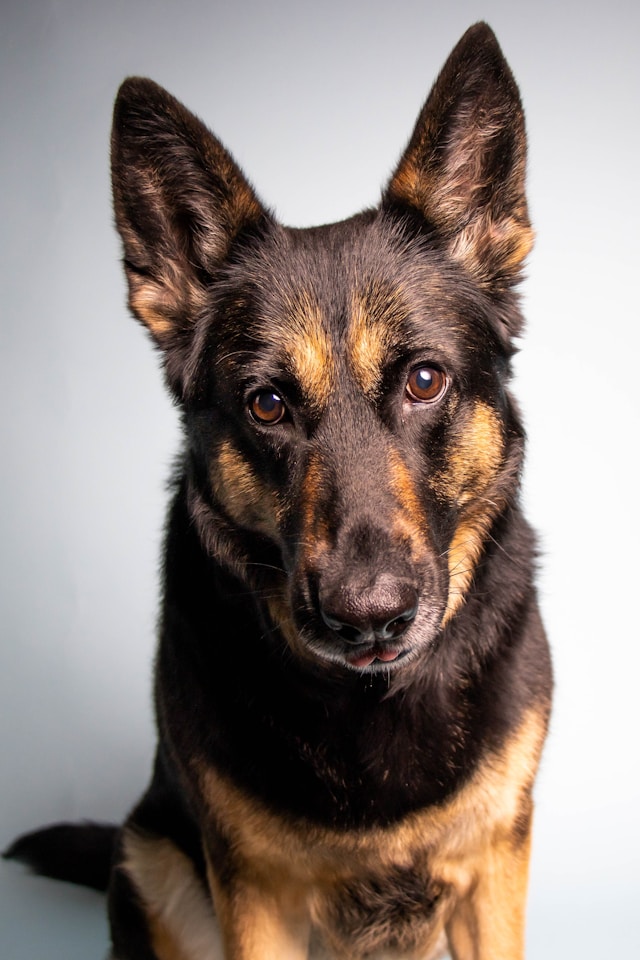
8. Alone Time: Preventing Velcro Dog Syndrome
German Shepherds bond deeply with their people, which is sweet until you realize they panic when left alone. Without training, this can turn into separation anxiety (and destruction).
How to help:
- Crate train early—it gives them a safe space
- Start with short absences and work up gradually
- Provide chew toys or puzzle feeders while you’re gone
- Keep goodbyes and hellos calm, not dramatic
Independence is a skill. Teach it young, and you’ll save yourself (and your furniture).
9. Common Owner Mistakes (AKA Rookie Regrets)
Mistake 1: Underestimating their exercise needs
Solution: Commit to daily activity, rain or shine.
Mistake 2: Skipping socialization
Solution: Expose them to everything early. Don’t wait.
Mistake 3: Inconsistent training
Solution: Set rules and stick to them. No exceptions.
Mistake 4: Ignoring shedding and grooming
Solution: Get ahead of it—brush often and invest in a good vacuum.
Mistake 5: Treating them like a backyard ornament
Solution: German Shepherds need to be part of the family. They don’t do well isolated.
10. Personality: The Best Part of All
At their best, German Shepherds are loyal, goofy, protective, and affectionate. They’ll guard your home, play with your kids, and curl up beside you like they’re still puppies. They’re working dogs, yes—but also total clowns who’ll keep you laughing.
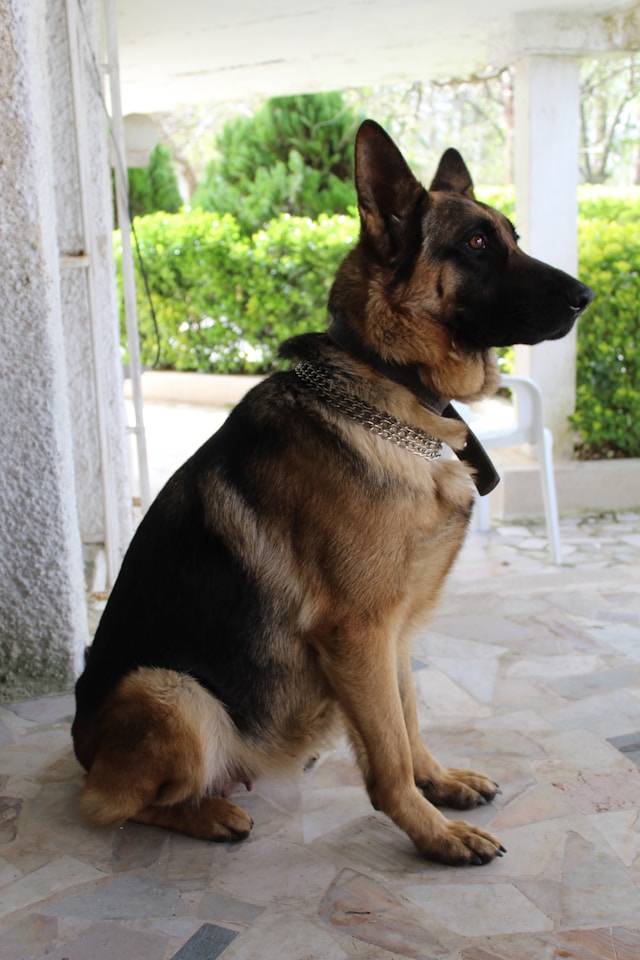
Final Thoughts
Bringing a German Shepherd into your life is rewarding, but it’s also a commitment. They need exercise, training, grooming, and lots of time with you. In return, you’ll get one of the most loyal and intelligent companions out there.
Quick recap for new owners:
- Exercise daily (and then some)
- Train consistently from day one
- Socialize early and often
- Feed high-quality food and watch portion sizes
- Groom regularly (embrace the fur)
- Stay on top of health checks
- Keep their brains as busy as their bodies
Do all that, and you won’t just have a dog—you’ll have a partner, a protector, and a best friend. IMO, life with a German Shepherd is messy, hairy, and sometimes exhausting… but absolutely worth it.

I’ve spent 10+ years in dog training, digging into what makes dogs (and their humans) tick. At Smart Dog Learning, I share my no-nonsense, fun approach to training so you can enjoy life with a well-behaved, happy pup—no boring lectures, just practical results 😉






